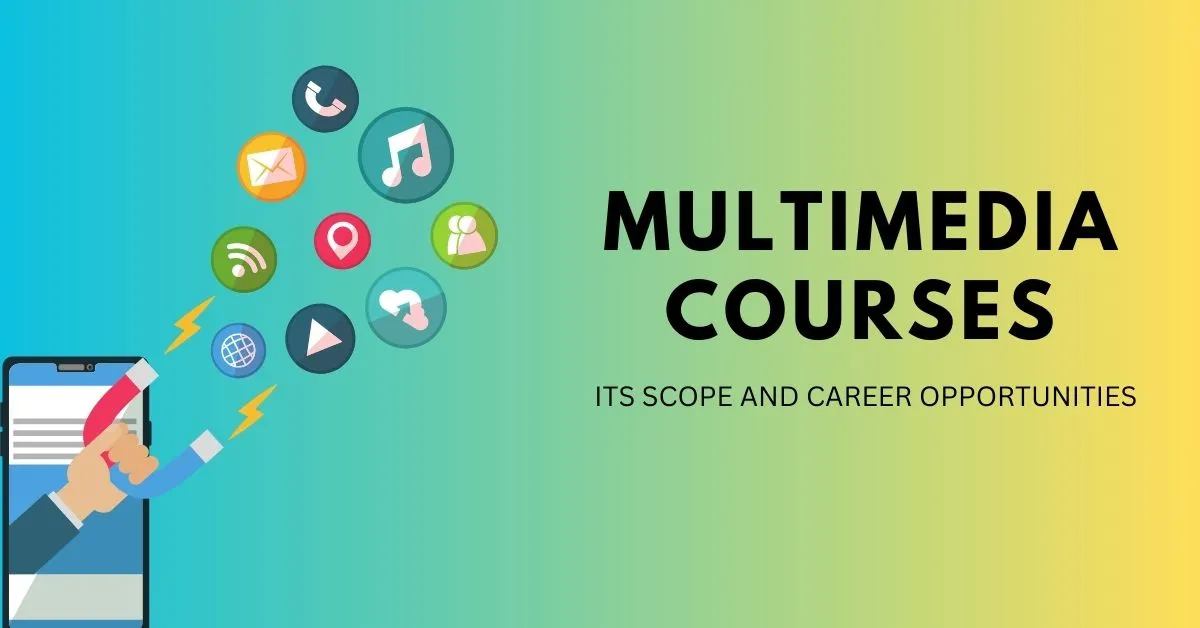


20, july 2023
In today's digital age, multimedia has become an integral part of our lives, encompassing a wide range of interactive and engaging mediums such as graphics, animation, videos, and more. Pursuing a multimedia course can open doors to exciting career opportunities in various industries. In this blog post, we will delve into the scope of multimedia courses and the diverse career pathways they offer.
A multimedia course is an educational program that focuses on developing skills and knowledge in various aspects of multimedia design and production. It encompasses a wide range of subjects, including graphic design, web development, animation, video production, user experience (UX) design, interactive media, and more. These courses typically provide hands-on training using industry-standard software and tools to equip students with the necessary skills to create engaging and interactive multimedia content. Multimedia courses often cover topics such as digital imaging, typography, motion graphics, audio and video editing, coding, 3D modeling, and interactive design. Students learn how to combine different media elements, such as text, images, audio, video, and animation, to create compelling digital experiences for various purposes, including entertainment, marketing, education, and communication.
These courses may be offered at different levels, including certificate programs, diplomas, undergraduate degrees, and postgraduate degrees, depending on the institution and the depth of study desired. Some multimedia courses may focus on specific areas, such as graphic design or animation, while others offer a broader curriculum covering multiple multimedia disciplines.
The duration and structure of multimedia courses vary depending on the educational institution and the level of study. Students typically engage in practical assignments, projects, and portfolio development to showcase their skills and creativity.
Overall, a multimedia course provides students with the knowledge, technical skills, and creative abilities to work in diverse industries that rely on multimedia content creation, such as advertising, entertainment, gaming, web development, film and television, marketing, and more. It equips individuals with the tools to effectively communicate through various media formats in the digital world.
Multimedia courses equip students with a comprehensive understanding of various multimedia tools, technologies, and creative processes. These courses cover subjects like graphic design, web development, animation, video production, user experience (UX) design, and interactive media. Students gain hands-on experience with industry-standard software and develop their artistic and technical skills.
Multimedia skills provide a strong foundation for freelancing or starting your own creative business. You can offer services like graphic design, web development, or animation on a project basis. With the right skills and entrepreneurial spirit, you can build a thriving multimedia business.
Multimedia courses offer a vast scope and abundant career opportunities in today's digital landscape. Whether you aspire to be a graphic designer, animator, web developer, video editor, or UX/UI designer, acquiring multimedia skills will set you on a path to success. Embrace the ever-evolving world of multimedia, harness your creativity, and open doors to a fulfilling and dynamic career in this exciting field.